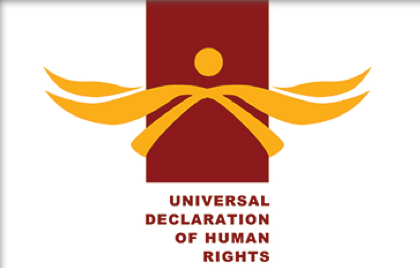I would like to know if vegans have any protection for their practice under human rights laws. Veganism is essentially a boycott against all industries that exploit non-human animals. And more broadly, are boycotts of any kind protected?
These laws could potentially be relevant:
International Covenant on Economic, Social and Cultural Rights
Article 1
- All peoples have the right of self-determination. By virtue of that right they freely determine their political status and freely pursue their economic, social and cultural development.
Self-determination seems quite vague and would seem to imply autonomy in general. Does that imply that someone can boycott whatever they want, like fossil fuels, credit cards, cars, meat, Internet, etc?
I also wonder about the language effect of using “peoples” in that wording. It would seem to imply that individuals do not get self-determination, but a people (a group of people) have that right. Can anyone clarify?
UDHR
Article 18:
Everyone has the right to freedom of thought, conscience and religion; this right includes freedom to change his religion or belief, and freedom, either alone or in community with others and in public or private, to manifest his religion or belief in teaching, practice, worship and observance.
International Covenant on Civil and Political Rights
Article 18
- Everyone shall have the right to freedom of thought, conscience and religion. This right shall include freedom to have or to adopt a religion or belief of his choice, and freedom, either individually or in community with others and in public or private, to manifest his religion or belief in worship, observance, practice and teaching.
- No one shall be subject to coercion which would impair his freedom to have or to adopt a religion or belief of his choice.
- Freedom to manifest one’s religion or beliefs may be subject only to such limitations as are prescribed by law and are necessary to protect public safety, order, health, or morals or the fundamental rights and freedoms of others.
Vegan is not religion but this seems to say you can manifest a belief and practice it. So then I wonder about (for example) a vegan in prison. Can a vegan prisoner insist on a plant-based diet?
I wonder to what extent ¶3 can reduce these rights. To say it’s okay to limit ¶1 rights in pursuit of “public order” is quite broad. Any action by a gov to repress ¶1 would be argued to be in the interest of “public order”.
If an Amish person or luddite were to say “fuck the Internet – I’m done with CAPTCHAs, tracking and surveillance, forced use of email…etc“, and develop beliefs against Internet and thus unplug from it, couldn’t the gov argue that going analog compromises “public order” (as governments increasingly impose the use of Internet on people)?
(edit) A big fuck you to the cowardice assholes silently downvoting this thread for asking questions. Contempt for people knowing their rights is despicable.


Try reading your own source. Look for “usually” in your cited definition. If you replace “usually” with “always” it would get you closer to the definition you’re attempting to apply in your claims. At least it’s more clear why you originally thought expression rights would matter.
Yet you just indicated you are standing behind Webster’s definition, which (incorrectly) claims that a boycott is necessarily “concerted”. An “organised” boycott is “concerted”. Working in concert.
A dictionary’s 2-liner gives a very rudimentary understanding of the practice. It’s good for someone starting from zero, but you should really read the history and learn a bit about the concept instead of trying to think like a robot. Lookup Charles C. Boycott to learn the origins. A dictionary is really a shitty source for gaining in-depth insight. Anyone can find a dictionary that supports different meanings. Then what? A battle of dictionaries… Webster vs. Random House? A prof would be embarrassed to refer to a dictionary. The problem with Webster is that it attempts to capture the general concept in 2 lines of text but in an effort to capture the typical practice it yields something inaccurately narrow. They made a trade-off. Webster was right to say it /usually/ manifests as an expression, but a boycott does not cease to be a boycott in the absence of a concerted effort of multiple actors. Indeed that is also usually the case but not always. And you’re hoping a 2 line blurb will cover all situations. It’s a non-starter because those of us who live by the boycott as a lifestyle could not possibly convey expression across the board. If I were to introduce expression to my lifestyle of boycotting ~1000+ brands for every one of them, it would be unsurmountable. I would have to cut back on the quantity of boycotts by 2 orders of magnitude.